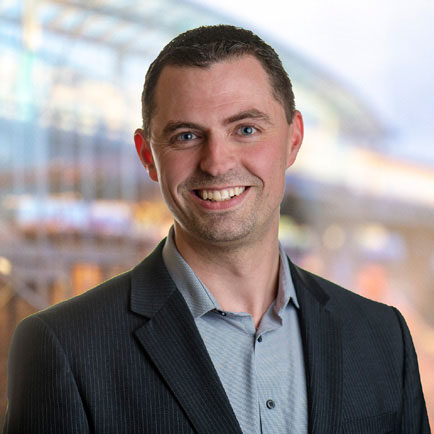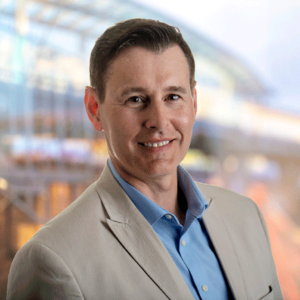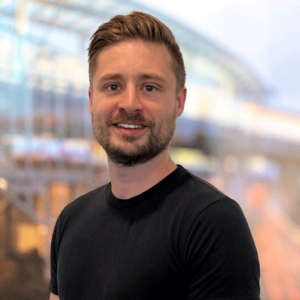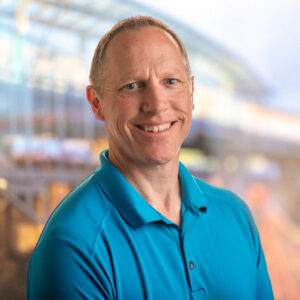They don’t teach enough leadership in engineering school, so you learn on the job
Andrew admits he wasn’t the typical A+ student bound for a career in engineering when leaving high school. But he figured out how to be one at university, earning concurrent degrees with distinction in engineering and computer science having found this passion. He could have gone down a different career path at the graduation fork in the road; in 2000 the tech bubble burst, so he opted to take the path paved by a booming construction sector and a renewed need for structural engineers in the industry.
He was one of a select few in the Toronto office when hired as a young engineer at RJC. The structural team was beginning its exponential growth and Andrew steadily climbed the ladder as his experience also grew. It was a fairly linear path though it didn’t happen overnight, from junior designer through to project engineer, step by step, with eventual assignment to Group Leader, and now as Team Leader. Today his role has shifted substantially, where the actual engineering design work accounts for a fraction of his time and the rest is spent on people and business management—a shift he welcomes in part because of the new learning opportunities it provides.
Andrew points to RJC’s culture of collaboration and learning from colleagues and mentors alike as helping to shape his career progression. He believes in addition to the technical acumen it’s an important element of the RJC career development model, not just for new hires or young engineers starting their careers, but for senior management, as well. It’s easy to lose sight of one’s own development and formal goal setting while being responsible for ensuring so many others are doing it. These same lessons learned are valuable in the successful and constant integration of work and a busy personal family life.
Building client relationships and helping them achieve their goals while bragging about cool projects is the root of our profession, but he also gets excited by helping take the firm into new markets and developing new capabilities within the practice. To do that in part requires finding out what energizes and motivates the team. Andrew’s current goal is to be the best leader possible to his team—what he affectionally calls his band of creative artists—and to build on their already stellar reputation, so clients want to come to RJC first, knowing their needs will be exceeded, no matter the challenge.
Recently his days are more likely filled with HR and finance responsibilities than the actual engineering; working to improve processes and efficiencies, etc. while balancing the long-term growth and sustainability of the business, with short-term successes to be proud of. At the end of the day, Andrew is still a self-described approachable, practical, supportive, and level-headed nerd at heart, like so many others in the RJC family.
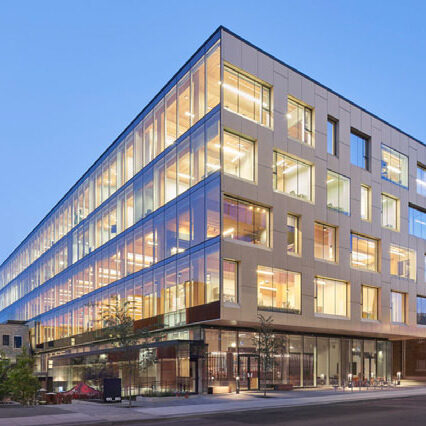
He has more than 20 years under his belt with RJC which have provided broad and deep experience in engineering, and increasingly on the people and business management side of things. Now as team leader in Toronto he has responsibility for 100+ people. Through his career he’s looked to his many peers and mentors to learn firsthand what they don’t teach in engineering school—how to lead.
Other RJC Stories
